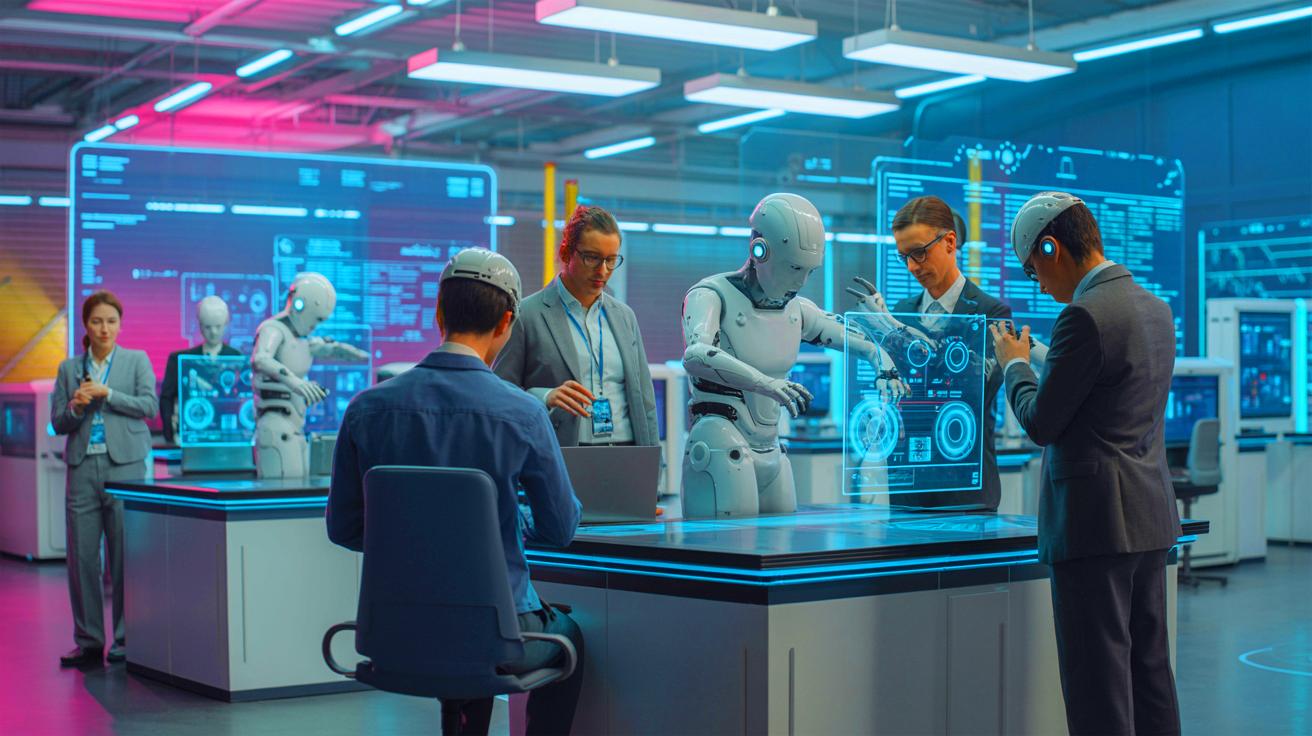IN A NUTSHELL
🤖 Chamath Palihapitiya predicts a shift towards AI systems replacing traditional coding roles within 18 months.
🧠 Engineers are expected to adopt supervisory roles, focusing on strategic oversight rather than hands-on coding.
📈 The job market may prioritize skills like problem-solving and communication over technical experience due to AI-driven changes.
📚 Educational focus may shift towards fields like philosophy and psychology to equip individuals for an AI-dominated future.
In the rapidly evolving world of technology, Chamath Palihapitiya’s recent remarks have sparked significant discussions about the future of engineering. As a prominent venture capitalist, Palihapitiya’s projections suggest a dramatic shift in the role of engineers, driven largely by advancements in artificial intelligence. He envisions a future where traditional coding skills may become obsolete, as AI systems increasingly handle tasks once performed by humans. This potential transformation in the tech industry raises important questions about how engineers will need to adapt and what skills will become essential in a world dominated by AI.
The Future Role of Engineers
Chamath Palihapitiya’s assertions come at a time when artificial intelligence is becoming an integral part of the tech industry. With AI’s capabilities expanding, the traditional role of engineers is expected to transform significantly. Palihapitiya predicts that within 18 months, engineers may transition from hands-on coding to more supervisory roles, overseeing complex AI systems. This shift is anticipated to alter the tech landscape, as AI assumes tasks traditionally managed by human coders.
Despite the increasing automation, Palihapitiya emphasizes the continued need for human input in software design. He points out that AI systems often struggle with understanding and implementing complex business rules, which require coherent human explanations. As a result, engineers will still play a critical role in guiding AI systems to ensure they align with business objectives. However, the nature of their work is poised to change, focusing more on strategic oversight than direct coding.
The Implications of an AI-Driven Job Market
Palihapitiya’s predictions align with broader trends observed across the tech industry. Notably, leaders like Mark Zuckerberg have also highlighted the potential for AI to replace many midlevel software engineering positions. This shift towards automation is already influencing hiring practices, with new roles like AI prompt engineers emerging. These positions prioritize logical thinking and basic computer understanding over traditional programming expertise.
The rise of AI-driven systems suggests that companies may begin valuing skills such as problem-solving, creative thinking, and effective communication over technical experience alone. This shift could redefine what it means to work in tech, as the focus moves from specific technical skills to the ability to adapt to new, AI-centered workflows.
Preparing for a New Workforce Landscape
In light of these changes, Palihapitiya’s comments raise crucial questions about educational preparation for future careers. He advises parents to encourage their children to pursue fields that develop critical thinking and human-centered skills, such as philosophy, psychology, and the humanities. As AI continues to integrate into various industries, these areas of study may offer more value in the future job market.
This perspective aligns with the growing recognition that AI cannot replicate certain human abilities. Skills that involve creativity, empathy, and complex problem-solving are likely to become increasingly valuable. As a result, educational and career pathways may need to evolve to equip individuals with the skills necessary for success in an AI-driven world.
Reimagining Education and Skill Development
The potential obsolescence of traditional coding skills prompts a reevaluation of educational priorities. Palihapitiya’s suggestion to focus on subjects like history, physics, and English writing underscores the need for a holistic approach to skill development. As AI systems take on more tasks, the ability to think critically and communicate effectively will become paramount.
In this context, the humanities and social sciences may gain renewed importance, offering insights into human behavior and societal dynamics that AI cannot fully grasp. As industries increasingly rely on AI, fostering a diverse skill set that includes both technical and interpersonal capabilities will be vital for navigating the complexities of the modern workforce.
As the tech industry braces for this anticipated shift, questions arise about how individuals and educational institutions will adapt to these changes. How will the next generation of engineers and workers prepare for a future where AI plays a central role, and what new opportunities will emerge in this AI-driven landscape?
This article is based on verified sources and supported by editorial technologies.
Did you like it? 4.7/5 (24)

